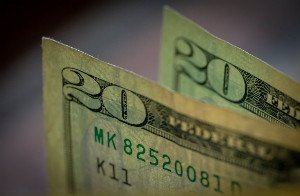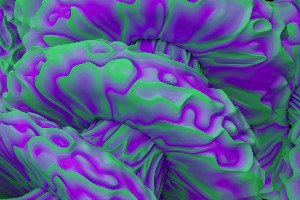Maria Helena da Rocha Pereira
A apreciação dos trágicos gregos pelos poetas e teorizadores portugueses do século XVIII
Introduction
A apreciação dos trágicos gregos pelos poetas e teorizadores portugueses do século xviii. Descubra como poetas e teóricos portugueses do século XVIII apreciaram e foram influenciados pelos trágicos gregos, explorando o Neo-helenismo e a reforma dos estudos em Portugal.
Abstract
"O único caminho para nos tornarmos grandes, até mesmo, se possível, imortais, é a imitação dos Antigos". Esta famosa frase de Winckelmann, o fundador do Neo-helenismo, como lhe chamou Pfeiffer, é também válida para a maior parte dos poetas portugueses do Séc. XVIII. O renovado culto da Antigüidade tínha penetrado em Portugal por mediação francesa. A origem deste acontecimento cultural, que é considerado uma reação contra o barroco, reside, na opinião geral, na publicação de uma série de livros: primeiro, a tradução da Art Poétique de Boileau, por Fran cisco Xavier de Meneses, quarto Conde da Ericeira (escrita em 1697, e muito lida em manuscrito, mas só impressa em 1793), depois do Exame Critico de Valadares e Sousa (1739); sete anos mais tarde saiu O Verdadeiro Método de Estudar de Verney que deu, como todos sabem, o primeiro grande impulso à reforma dos estudos. No ano seguinte, portanto em 1747, estalou a demorada polêmica entre o Marquês de Valença e Alexandre de Gusmão sobre o novo teatro, na qual o primeiro defendia a dramaturgia espanhola, e o segundo a francesa. Apenas um ano mais tarde, publicou Francisco José Freire (o arcádico Cândido Lusitano) a sua Arte Poética, que compendiava quase todas as regras provenientes, não só da Poética de Aristóteles e de Horácio, mas também da de Franceses, Italianos e Espanhóis. Que o livro não apresenta qualquer ponto de vista original, recónheceu-o o próprio autor, ao citar, incessantemente, para além dos teóricos gregos e latinos, os humanistas do Séc. XVI como Vossius, Scaliger, Castelvetro, Minturno, Robortello, e os modernos dos Séc. XVII e XVIII, como Boileau, Le Bossu, Dacier, Rolin, Muratori, Luzán e muitos outros. Conquanto estes teorizadores fossem conhecidos dos poe tas portugueses, o tratado permaneceu como o compêndio basilar da maioria, como se deduz das entusiásticas palavras de Manuel de Figueiredo:
Review
The article, titled "A apreciação dos trágicos gregos pelos poetas e teorizadores portugueses do século XVIII," proposes an examination of the reception and influence of ancient Greek tragedy within 18th-century Portuguese literary circles. The abstract immediately establishes the context, invoking Winckelmann's call for the "imitação dos Antigos" as a guiding principle for much of Portuguese poetry during this period. It effectively frames this renewed cult of Antiquity as a French-mediated cultural phenomenon, positioning it as a reaction against the preceding Baroque era. This opening provides a clear and concise overview of the central theme and the broader intellectual current underpinning the study. The abstract proceeds to meticulously detail the key catalysts and figures instrumental in this cultural shift. It highlights a series of foundational publications, including the delayed but influential translation of Boileau's *Art Poétique*, the *Exame Crítico* of Valadares e Sousa, and Verney's *O Verdadeiro Método de Estudar*, which significantly propelled educational reforms. Furthermore, it points to the critical 1747 polemic between the Marquês de Valença and Alexandre de Gusmão regarding dramatic theory, contrasting Spanish and French models. A pivotal contribution appears to be Francisco José Freire's *Arte Poética*, described as a comprehensive compendium synthesizing rules from Aristotle, Horace, and a host of French, Italian, and Spanish theorists, alongside 16th-century humanists and 17th/18th-century moderns. The abstract notably acknowledges Freire's own admission of the lack of original perspective in his work, yet underscores its enduring status as the "compêndio basilar" for the majority of poets, as evidenced by contemporary enthusiastic endorsements. This abstract presents a robust and well-structured outline for a significant historical-literary study. Its strength lies in its meticulous identification of the intellectual lineage and the specific texts and authors that shaped 18th-century Portuguese literary theory concerning classical antiquity. The clear articulation of the French mediation, the key polemics, and the foundational role of Freire's *Arte Poética* provides a solid framework for understanding the period. While the abstract focuses heavily on the *theorizers* and the theoretical reception of classical principles, a full paper would ideally further explore *how* this appreciation of Greek tragedians manifested in the actual works of Portuguese *poets*, connecting theory explicitly to poetic practice. Nevertheless, this abstract effectively sets the stage for an in-depth and scholarly exploration of a crucial epoch in Portuguese literary history, promising valuable insights into the mechanisms of cultural transmission and adaptation.
Full Text
You need to be logged in to view the full text and Download file of this article - A apreciação dos trágicos gregos pelos poetas e teorizadores portugueses do século XVIII from Ensaios de Literatura e Filologia .
Login to View Full Text And DownloadComments
You need to be logged in to post a comment.
Top Blogs by Rating
The Healing Power of "Ahhh": M...
By Sciaria
Ops Debt: Unmasking the Silent...
By Sciaria
Our Digital Footprint: An Anth...
By Sciaria
Favorite Blog
Are Your Emojis Truly Connecti...
By Sciaria
The Brain's Ultimate Illusioni...
By Sciaria
From Wires to Wonders: The Ele...
By Sciaria





